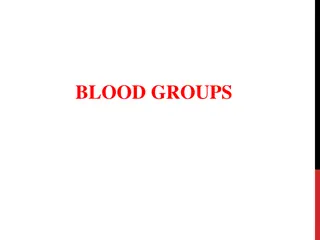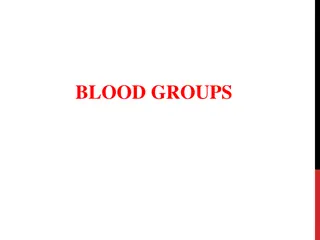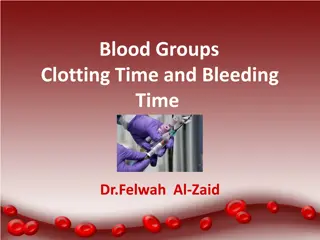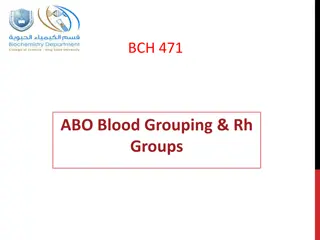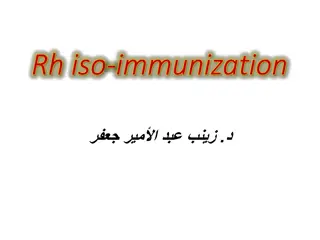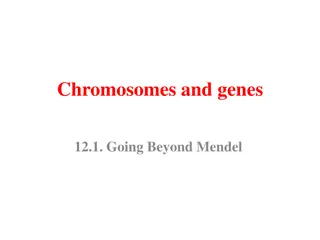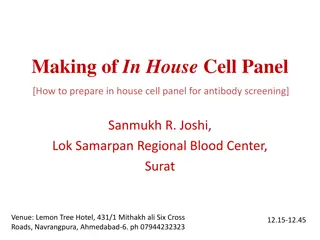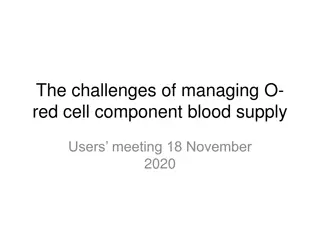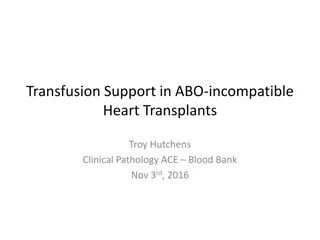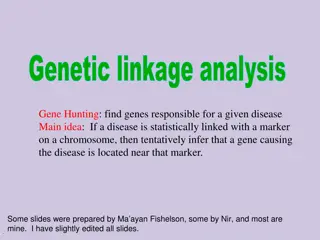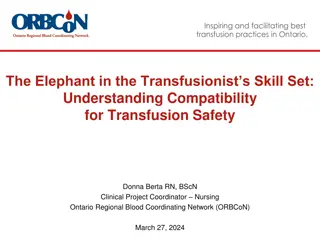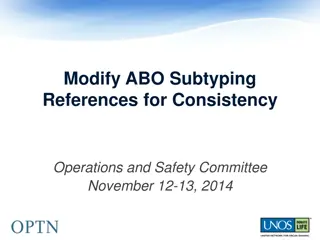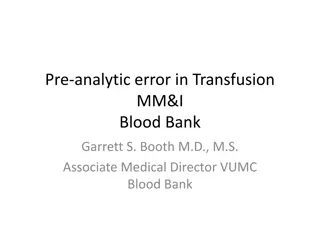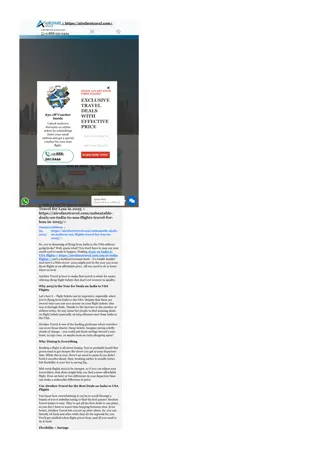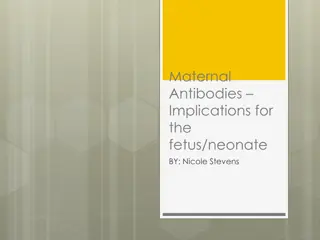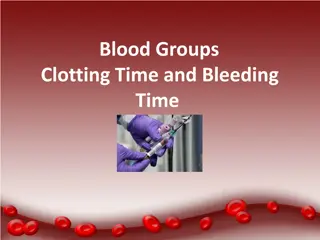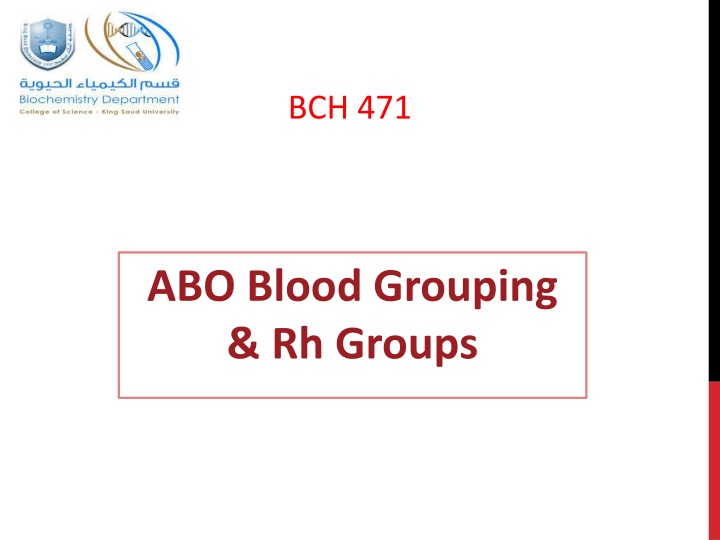
ABO Blood Groups and Rh Factors
Learn about ABO blood grouping and Rh groups, how antigens and antibodies determine blood types, the significance of ABO system in blood transfusions and forensic medicine, and the inheritance of blood types from parents.
Download Presentation

Please find below an Image/Link to download the presentation.
The content on the website is provided AS IS for your information and personal use only. It may not be sold, licensed, or shared on other websites without obtaining consent from the author. If you encounter any issues during the download, it is possible that the publisher has removed the file from their server.
You are allowed to download the files provided on this website for personal or commercial use, subject to the condition that they are used lawfully. All files are the property of their respective owners.
The content on the website is provided AS IS for your information and personal use only. It may not be sold, licensed, or shared on other websites without obtaining consent from the author.
E N D
Presentation Transcript
BCH 471 ABO Blood Grouping & Rh Groups
To determine the blood group according to the ABO system. (D antigen). factor To test for the availability of the Rh
The differences in human blood are due to the presence or absence of certain protein molecules called antigens and antibodies. The antigens are located on the surface of the red blood cells Antigens are also found in a wide variety of tissues and biological fluids such as saliva, milk , seminal fluid, urine , and gastric juice. The antibodies are in the blood plasma to attack foreign antigens, resulting in clumping (agglutination)
The ABO blood type system is the major blood type classification system. The four blood types in the ABO system (A, B, AB, and O) refer to different versions of oligosaccharides which are present on the surface of RBCs.
Blood group antigens must be determined to secure a safe practice of blood transfusion. They are also useful in determining familial relationships in forensic medicine.
Your blood type is established before you are born, by specific GENES inherited from your parents. You have two copies of this gene, one inherited from your MOTHER and the other inherited from your FATHER. Codominance is a the alleles of a gene pair in a heterozygote expressed thereby in offspring a phenotype neither dominant nor recessive condition in which are fully resulting with that is
There are 3 alleles or genes for blood type: A, B, & O. Since we have 2 genes, there are 6 possible combinations.
First studied in rhesus monkeys. Is the second most significant blood group system in human transfusion. The D antigen (RhD) is the most important. If it is present on RBCs surface, the blood is RhD positive (~80% of the population), if not it's RhD negative. So, for example, some people in group A will have it, and will therefore be classed as A+ (or A positive), while the ones that don't, are A- (or A negative) and so it goes for groups B, AB and O.
A person with Rh+ blood can receive blood from a person with Rh- blood without any problems A person with Rh- blood can develop Rh antibodies in the blood plasma if he or she receives blood from a person with Rh+ blood, whose Rh antigens can trigger the production of Rh antibodies
Also called, Erythroblastosis Fetalis Mother is Blood type Rh-, Father and fetus are Rh+ First pregnancy = sensitization at delivery due to hemorrhage Second pregnancy = Mother produce anti-Rh IgG antibodies that cross placenta to attack fetal RBCs leading to hemolysis
Principle Of Test Type B blood gp Anti B antibodies Agglutination Hemolysis Seen as the picture

